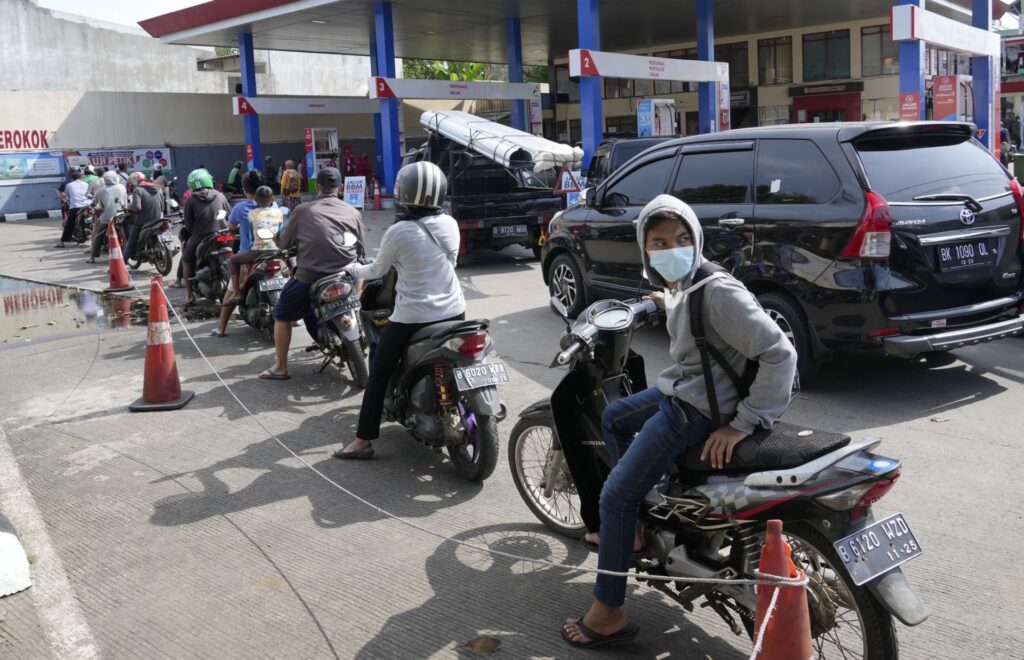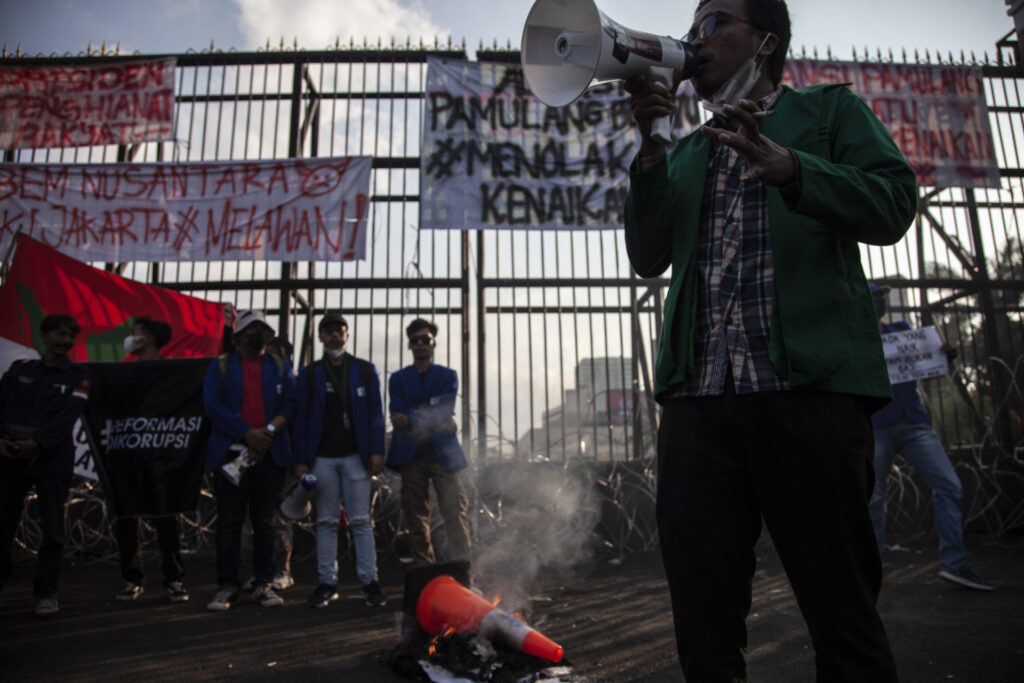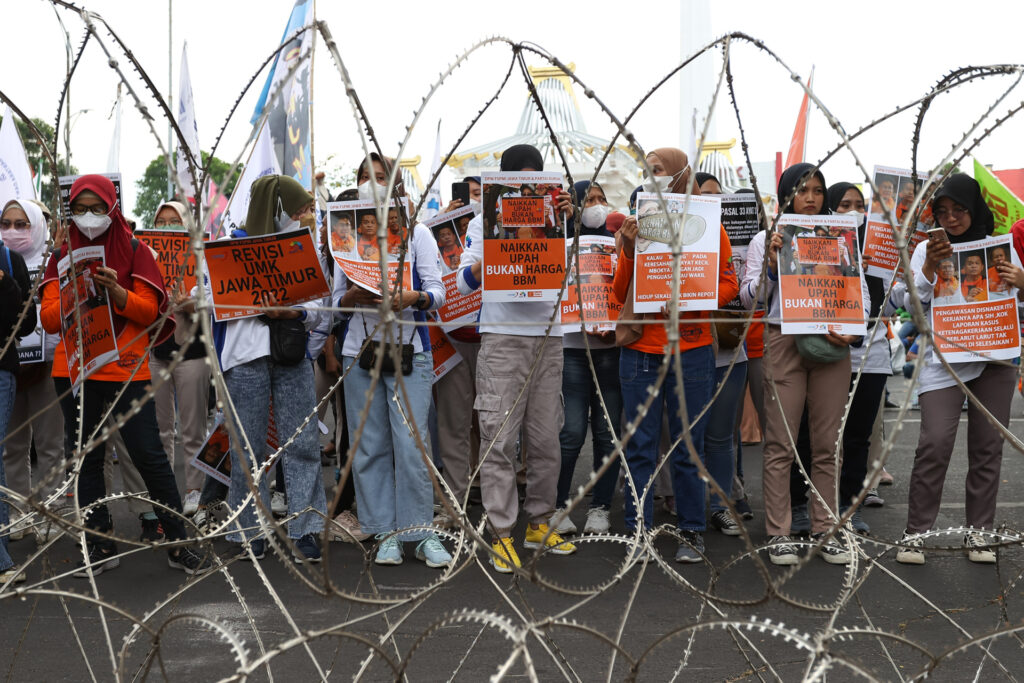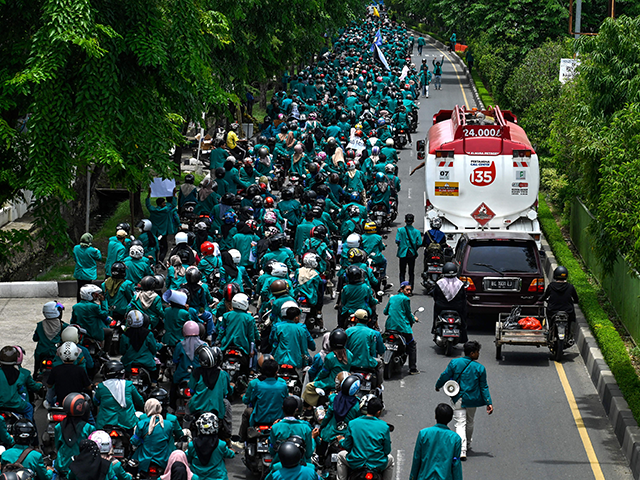Thousands of demonstrators marched through the cities of Indonesia on Tuesday, protesting against the first hike in government-subsidized fuel prices in eight years. The blowback may prove to be the stiffest challenge to President Joko “Jokowi” Widodo’s popularity since his reelection in 2019.
Widodo announced over the weekend that heavy government subsidies for fuel would have to be cut due to rising inflation and energy costs. The subsidy cuts will cause fuel prices to rise by about 30%, which will come on top of a 32% increase over the past year.
Gas remains very cheap in Indonesia by international standards, about 67 cents per gallon after the increases, but the average Indonesian salary is only about $10,000 per year.

Motorists queue up to fill up their tanks after the government announced an increase in fuel prices, at a gasoline station in Jakarta, Indonesia, Saturday, September 3, 2022. (AP Photo/Tatan Syuflana)
Widodo said the fuel price hikes were regrettable but he had no choice, because the cost of energy subsidies tripled over the past year to $34 billion, driven by rising oil prices.

Hundred of students held a protest against the hike of the fuel price, outside the Parliament building, in Jakarta, on September 06, 2022. (Aditya Irawan/NurPhoto via Getty Images)
The Indonesia Trade Union Confederation (known by its local acronym KSPI) called for nationwide demonstrations last week when rumors of a fuel price hike began spreading. Other labor groups and students answered the call, with thousands marching in Jakarta and other large cities.

Workers gather in protest against the reduction in fuel subsidies by the Indonesian government on September 06, 2022 in Surabaya, Indonesia. (Robertus Pudyanto/Getty Images)
Demonstrators were met by thousands of riot police, including forces deployed to protect gas stations from vandalism and panic buying. The protests quickly turned angry:
Union representatives said the gas price hike would hit workers and poor people living in cities the hardest, especially as they are still struggling to cope with inflation, rising food costs, and the aftermath of the Wuhan coronavirus pandemic.
The Widodo administration countered by offering enhanced welfare programs, but demonstrators demanded both full restoration of fuel subsidies and an increase in the minimum wage.
“These are very difficult conditions, but if you look at the assistance provided by the government, it is quite large. We hope this could help cushion the rise in prices that the people are facing,” Minister of Social Affairs Tri Rismaharini insisted at a news conference, to little visible effect.
A spokesman for the KSPI told the Associated Press on Tuesday that the demonstrations are just getting started, and will continue until at least December, possibly escalating into a national labor strike.
Fuel price increases usually trigger unrest in Indonesia, and it can grow quite serious. The mass movement that resulted in the 1998 fall of dictator Suharto began when a 71% fuel hike caused simmering discontent over inflation and food shortages to explode into riots. Suharto’s 32 years in power ended exactly two weeks after he raised gas prices.

COMMENTS
Please let us know if you're having issues with commenting.